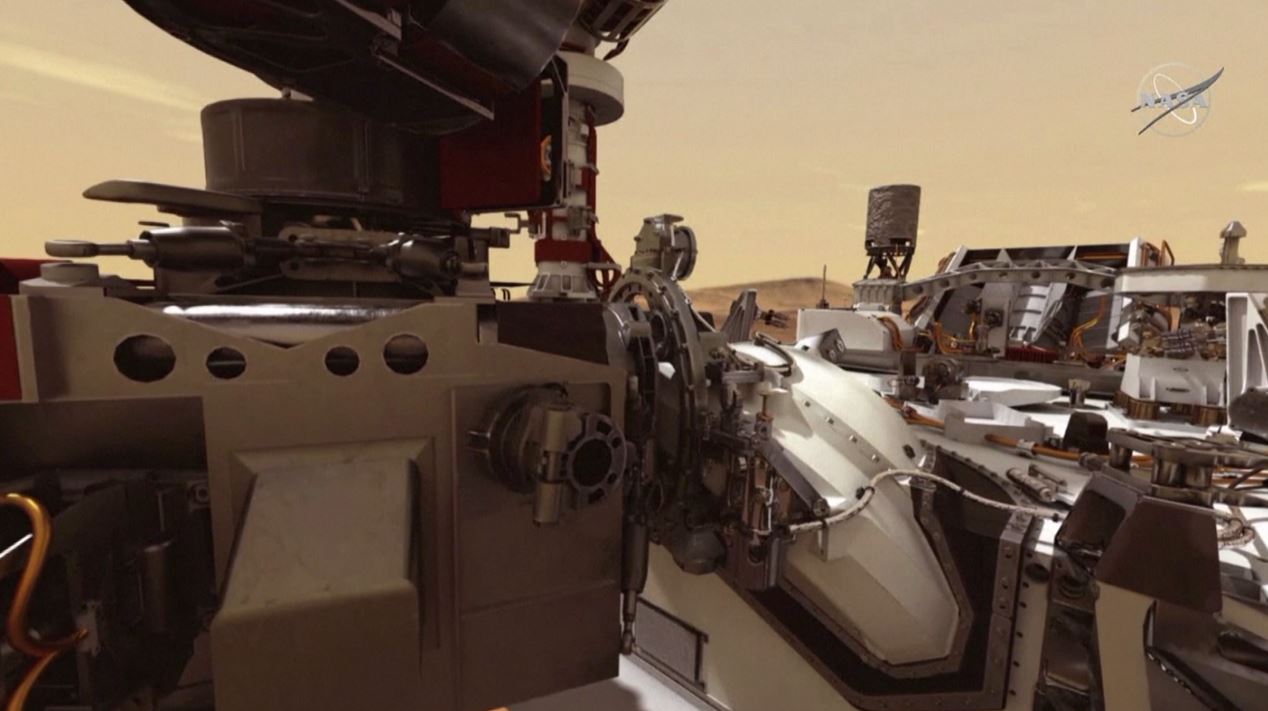INTERNATIONAL: NASA's Mars rover Perseverance has started its historic hunt for signs of ancient life on the Red Planet. The rover has been working seven days a week to test and practice with its sophisticated instruments, that have now started taking soil samples from the Jezero Crater. Scientists believe this was once a lake-bed that may hold evidence of primitive life.
NASA has already produced evidence of ancient rivers flowing into the crater, that formed a delta region similar to southern Vietnam. Previous rovers have detected clay which only forms in the presence of water. With its robotic arms, Perseverance is now drilling down into that clay to take samples. Among the questions scientists are hoping to one day answer is whether the soil in Jezero is sedimentary or volcanic, and whether the ancient lake went through multiple episodes of filling up and drying out again. Finely-layered rock has already been photographed by Perseverance, raising hopes that evidence of life might be found in those layers.
But we’ve got a long time to wait for answers. Samples will be collected over the next few months, but it won’t be until 2031 when those samples are collected and returned to Earth.























